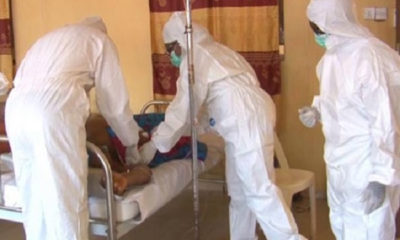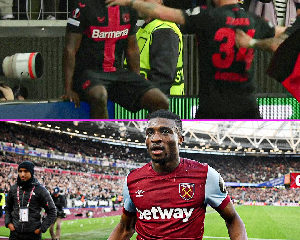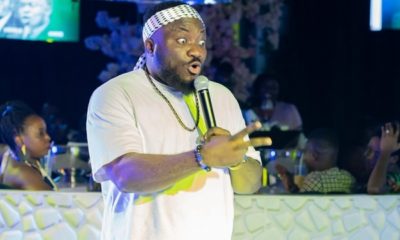News Africa
#EndSARS protests: Nigeria president commits to ending police brutality
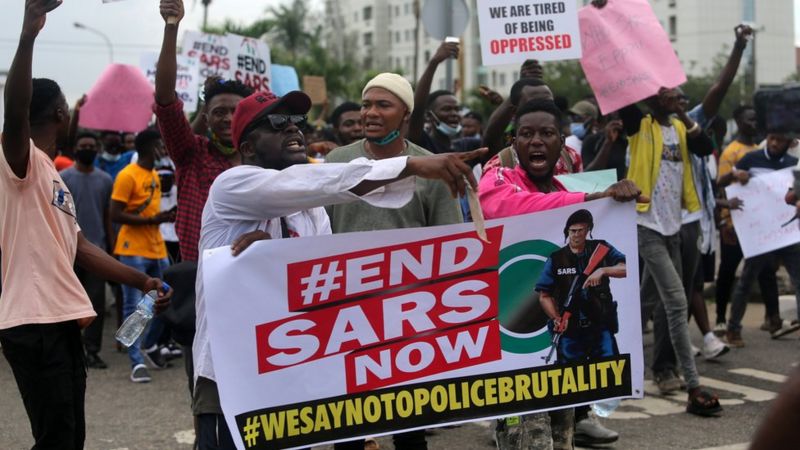
Nigeria’s President Muhammadu Buhari has said he is determined to end police brutality, introduce reforms and bring “erring personnel… to justice”.
His comments came after two days of protests sparked by a video of a man allegedly being killed by police.
The protest movement initially targeted the federal Special Anti-Robbery Squad (Sars), widely accused of unlawful arrests, torture and murder.
The protesters say they want the unit disbanded rather than reformed.
Previous commitments to change the behaviour of the police have not had an effect, critics say.
In a series of tweets, the president said that his government’s “determination to reform the police should never be in doubt”.

He added that he was being “briefed… on the reform efforts ongoing to end police brutality and unethical conduct”.
But he called for calm and emphasised that most police officers were committed to protecting Nigerians.
On Friday, in the capital, Abuja, police fired tear gas at protesters who were highlighting police harassment and brutality.
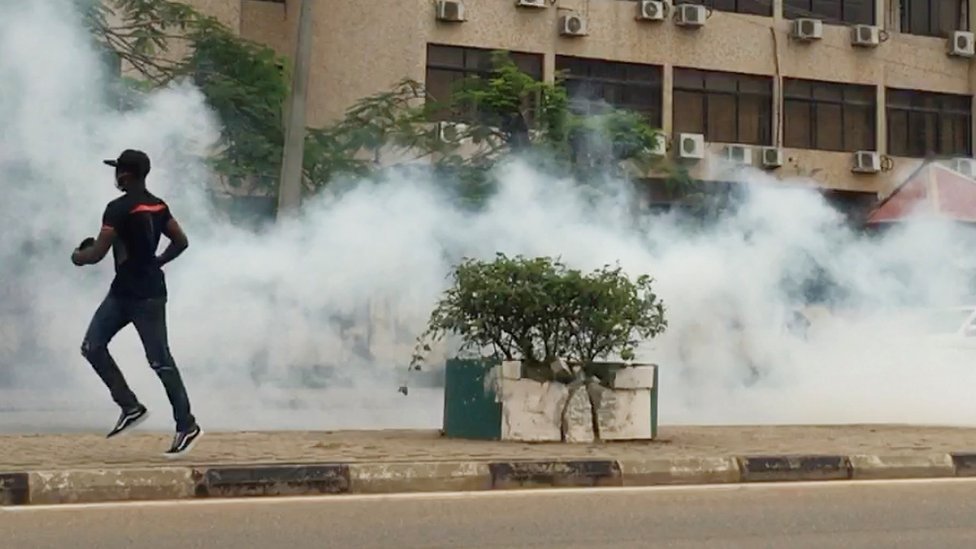 IMAGE COPYRIGHTTWITTER/@_EL_AMEEN/VIA REUTERS
IMAGE COPYRIGHTTWITTER/@_EL_AMEEN/VIA REUTERSA police spokesman said minimum force had been used but demonstrators told the BBC that some people had been beaten and one said she had heard gunshots.
The hashtag #EndSARS was trending worldwide on Twitter on Friday with celebrities including the Nigerian superstars Wizkid and Davido tweeting their support for protesters.
British-Nigerian Star Wars actor John Boyega has also expressed his backing on social media.
‘Targeted for being flashy’
The #EndSARS hashtag was first thought to have been used in 2018, but it emerged once again a week ago following the alleged killing of a young man by officers from the Sars unit.
Many people were using the opportunity to share stories of brutality attributed to the police unit, which has developed notoriety for unduly profiling young people, reports the BBC’s Nduka Orjinmo from Abuja.
Those considered “flashy” often attract the Sars officers’ attention and very few walk away without having to hand over money, while others are arrested or jailed on trumped-up charges and some have been killed, our correspondent adds.
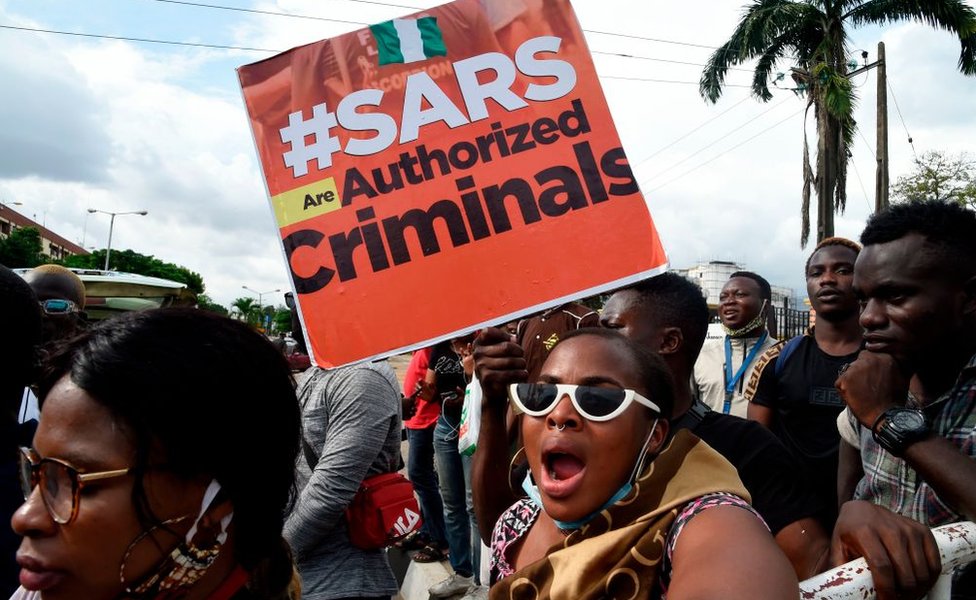 IMAGE COPYRIGHTGETTY IMAGES
IMAGE COPYRIGHTGETTY IMAGESOn Sunday, Nigeria’s inspector general of police Mohammed Adamu banned the Sars unit from carrying out stop and search duties and setting up roadblocks.
He also said members of Sars must always wear uniforms and promised the unit would be investigated.
But protesters want the unit disbanded completely.
Past promises
Two years ago, Vice-President Yemi Osinbajo tweeted that he had directed that the “management and activities of Sars” should be overhauled “with immediate effect”.

Then last year, a specially formed Presidential Panel on the Reform of the Special Anti-Robbery Squad recommended reforms along with the dismissal and prosecution of named officers accused of abusing Nigerians.
At the time, President Buhari gave the head of police three months to work out how to implement the recommendations, but critics say little appears to have changed.
Source: bbc.com
-

 Lifestyle2 weeks ago
Lifestyle2 weeks agoRoad Safety Authority narrates how buttocks causes road accident
-

 GENERAL NEWS4 weeks ago
GENERAL NEWS4 weeks agoWhy 15 police officers stormed Owusu Bempah’s church – Kumchacha narrates
-
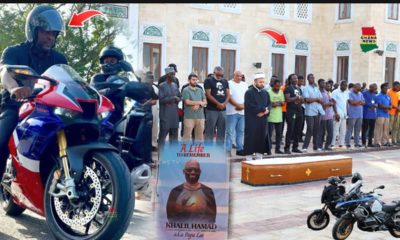
 GENERAL NEWS2 weeks ago
GENERAL NEWS2 weeks agoWatch how Ibrahim Mahama rode Honda superbike to pay last respects to late friend
-
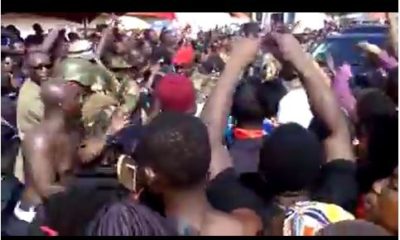
 GENERAL NEWS4 weeks ago
GENERAL NEWS4 weeks agoHow Offinso residents storm destooled queen mother’s house, demand for new chief
-

 South Africa News4 weeks ago
South Africa News4 weeks agoWoman thrown out of a speeding taxi while on her way to work
-
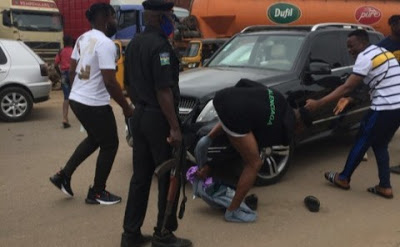
 GENERAL NEWS3 days ago
GENERAL NEWS3 days agoDeadly clash between youth and navy personnel results in two deaths at Tema Manhean
-

 SHOWBIZ KONKONSAH4 days ago
SHOWBIZ KONKONSAH4 days agoJunior Pope’s Death: Video of John Dumelo refusing to join canoe for movie shoot over safety concerns resurfaces
-
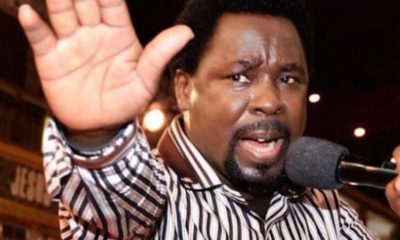
 News Africa1 month ago
News Africa1 month ago‘Satanically dubious’ – SCOAN releases statement on BBC’s report about TB Joshua, church


